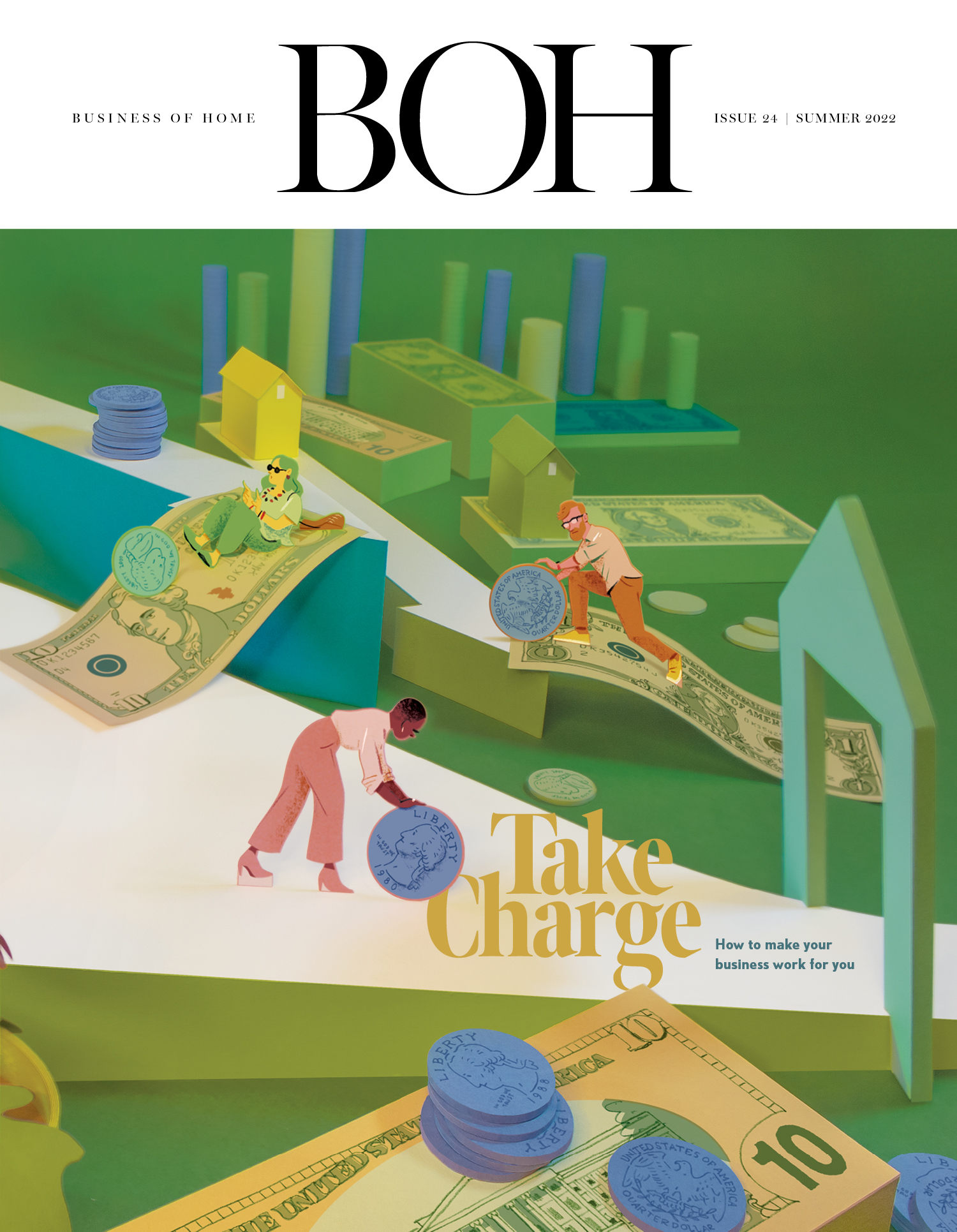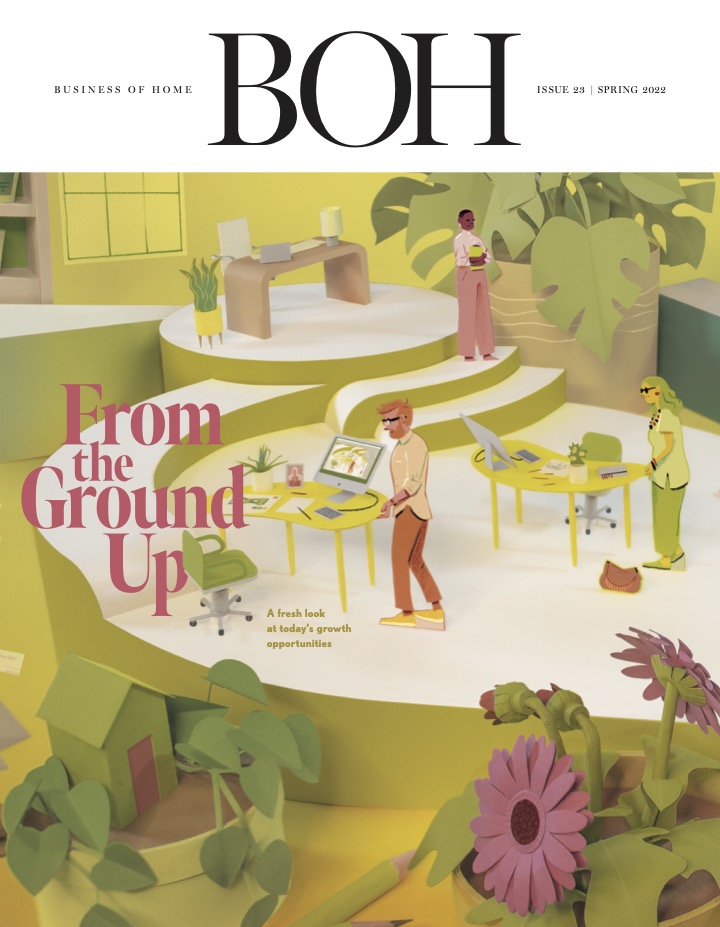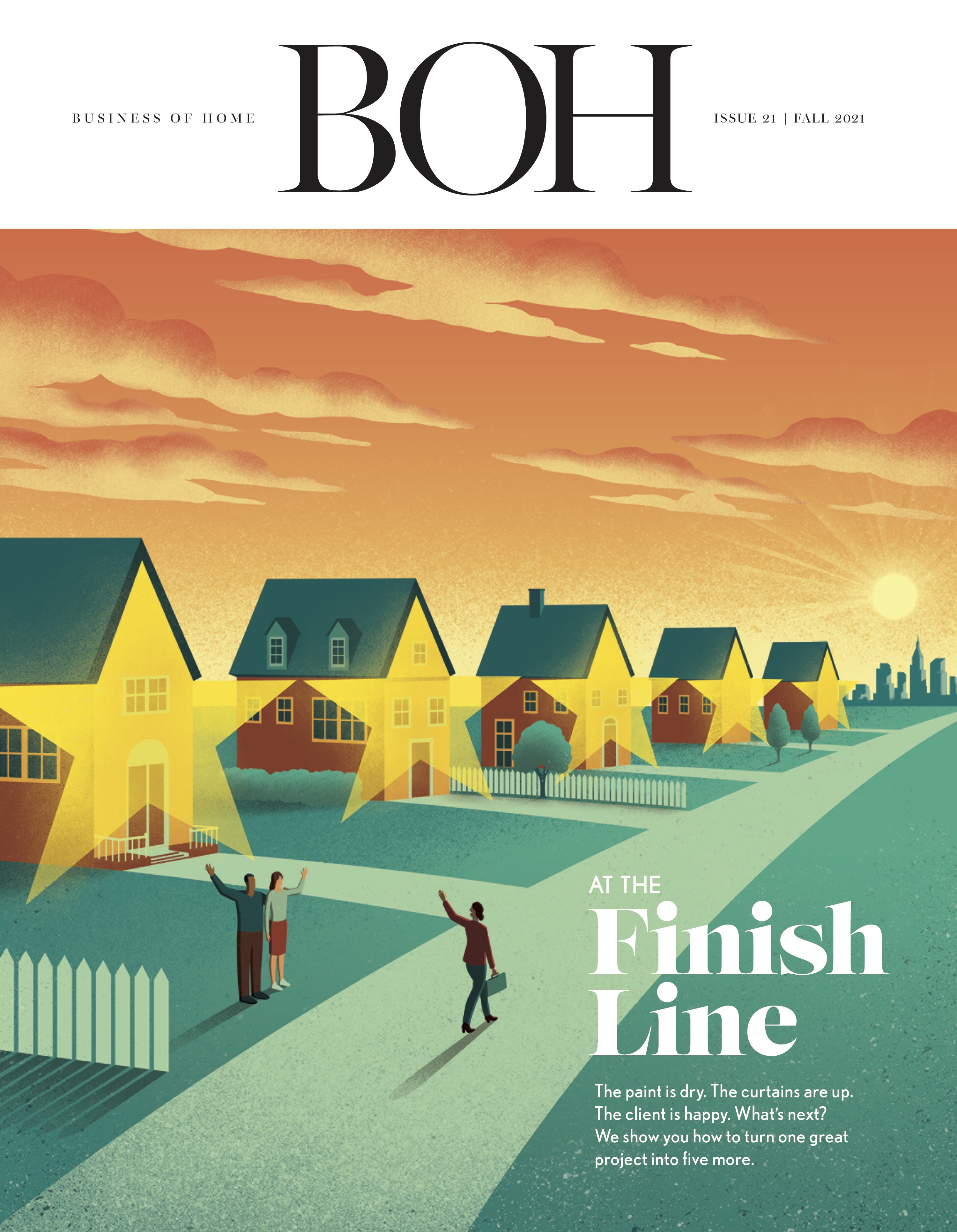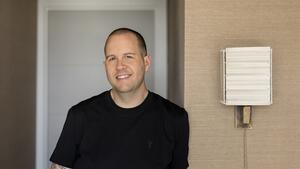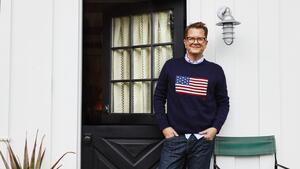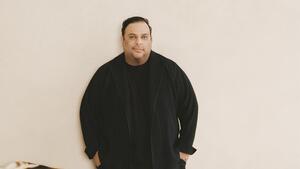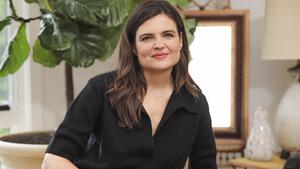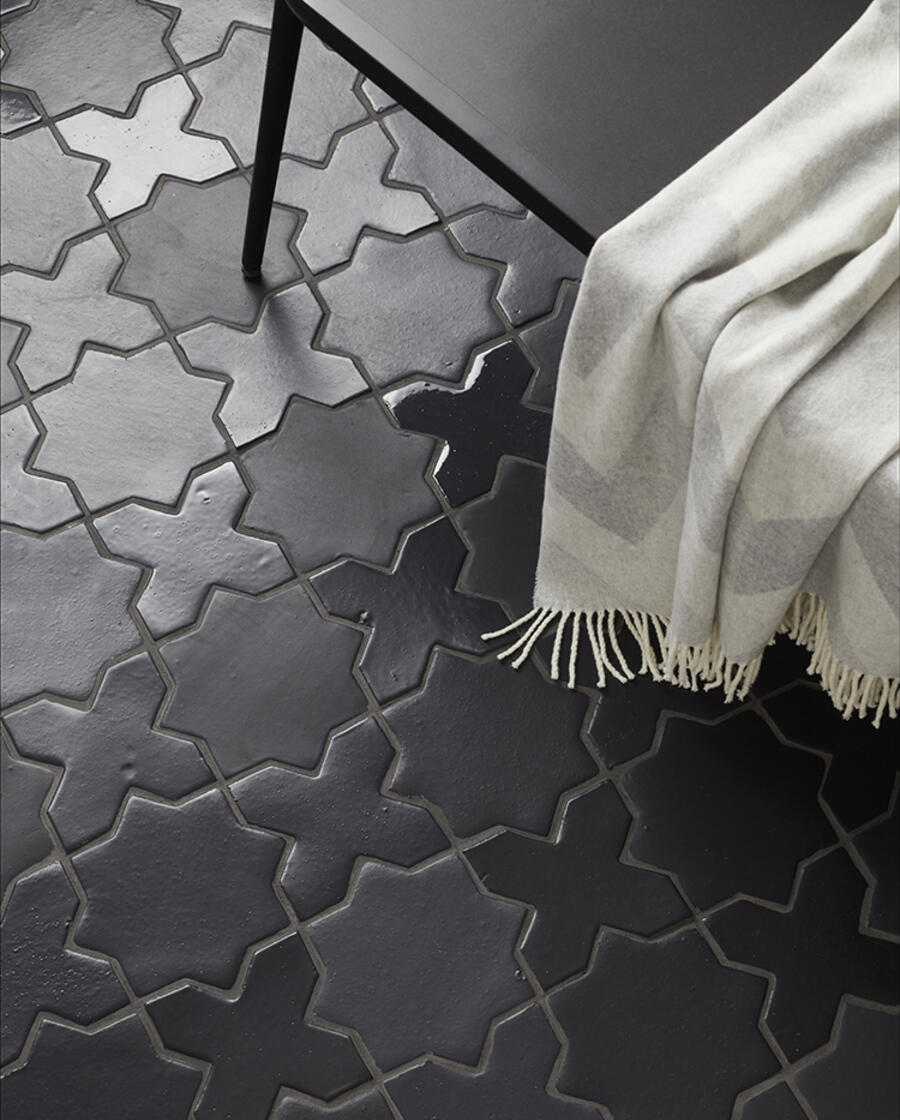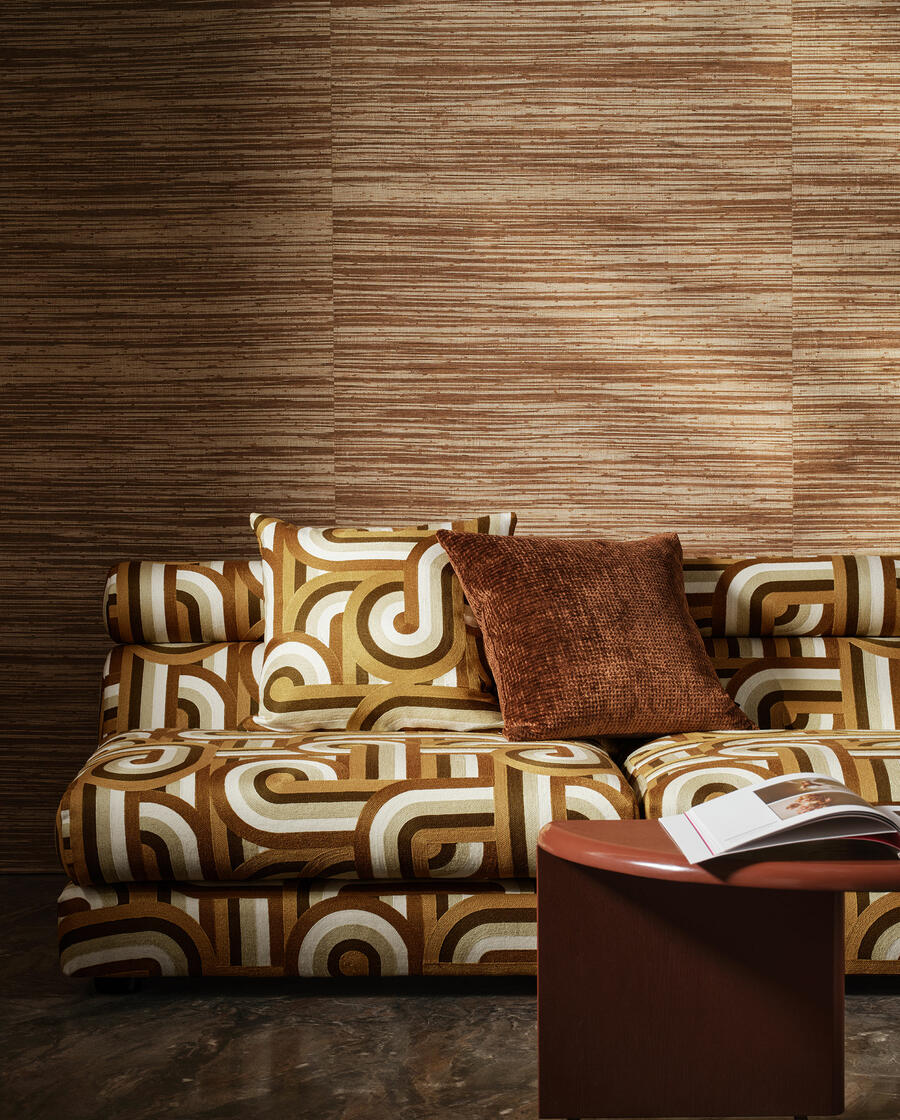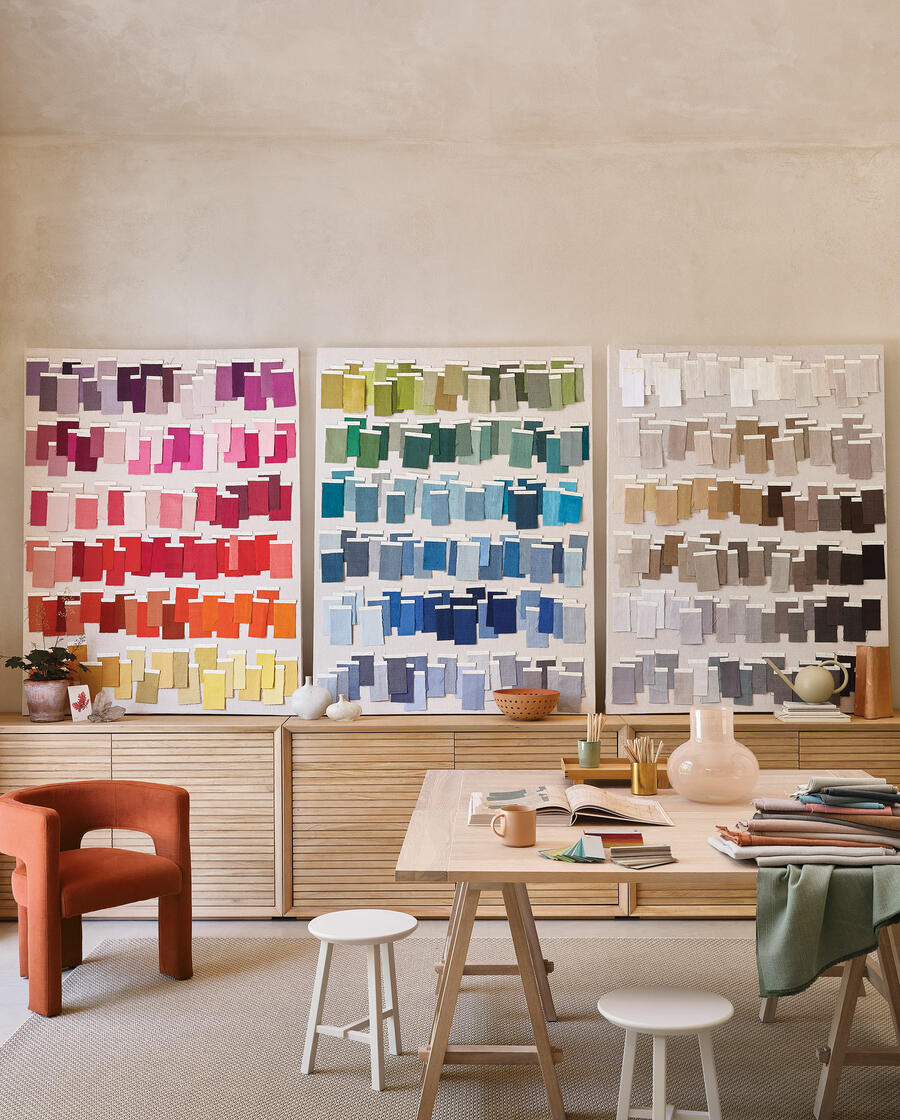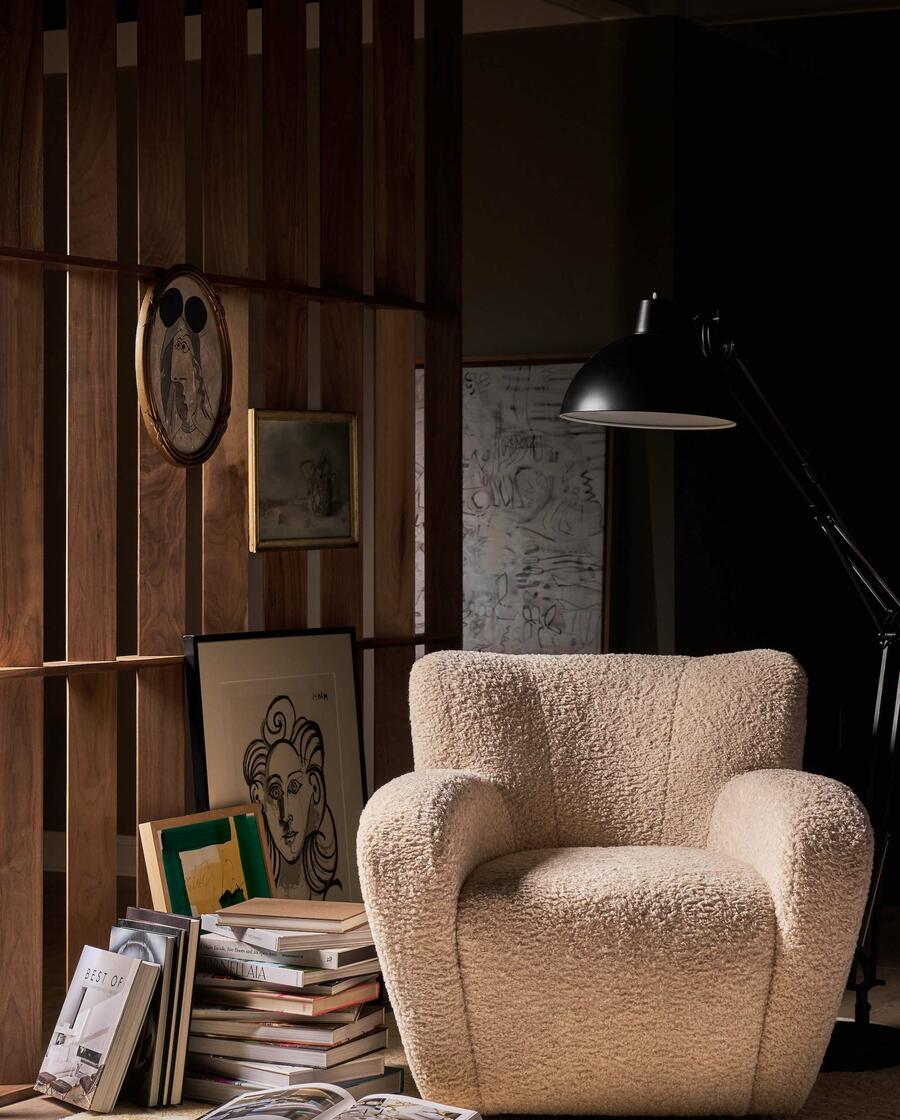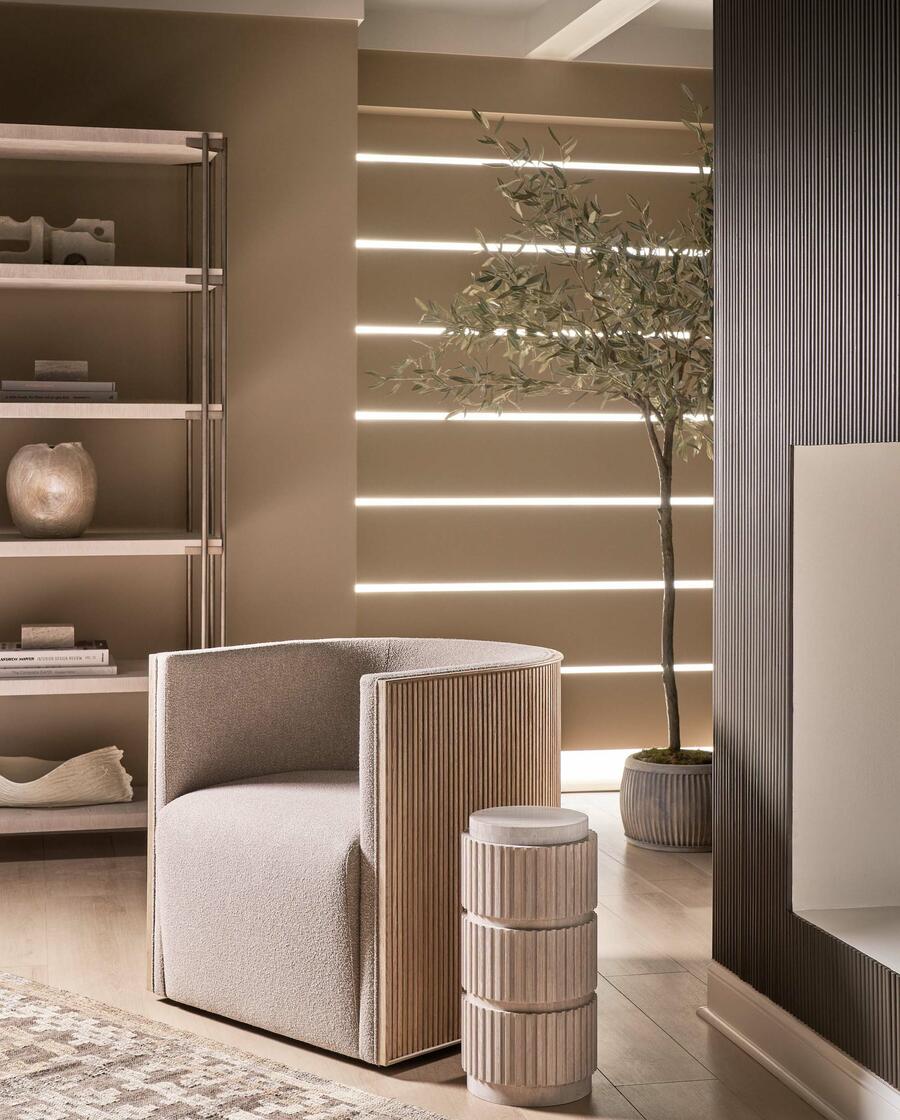Establishing a design firm is a feat in itself—one that involves cultivating a network of local clients, tradespeople and resources. Moving that operation to a new city poses a big question: Can the magic be re-created elsewhere? For Antonio DeLoatch, finding the answer forced the designer to dig deep to discover what his firm was really all about.
From the outset, DeLoatch’s foothold in the world of design was hard-earned. After being discouraged from pursuing design as a career path in college, he earned a degree in project management and took on draining corporate roles. Looking for a creative outlet, he pursued a nights-and-weekends job in retail, which kicked off a journey through the ranks of home brands like West Elm and HD Buttercup. Buoyed by those experiences, he made the jump to design, translating his in-store skills to independent clients and whole-home projects in Los Angeles. By 2019, he had built up enough clients to establish his own firm with a solid project pipeline—which quickly turned into an all-out influx during the pandemic.
Then came an unexpected pivot. When DeLoatch’s partner secured a job in New York, the pair decided to make the cross-country move together—which meant that the designer’s firm would be making the move as well.
“I had always said, ‘I’m building the foundation that I’m going to build the house on,’” DeLoatch tells host Kaitlin Petersen on the latest episode of the Trade Tales podcast. “Then finally, when I got to New York, I was met with a whole new chapter in my life, and it was such a beautiful blessing to realize that the foundation I was building wasn’t strong enough for what was coming and wasn’t big enough for what I was actually called to do.”
After ample soul-searching, he found a renewed vision for his firm. In the months that followed, he set out to reestablish his business—this time, with new processes, boundaries and long-term goals that would allow the operation to truly thrive. Elsewhere in the episode, he shares the story of the showhouse that changed everything for his business, and how he earns clients’ trust with frank money talk.
Crucial insight: While participating in a showhouse requires a designer to invest their own time and money into the experience, for DeLoatch, the Brooklyn Heights Designer Showhouse proved invaluable to his future firm: It was a chance to get in front of the local design community. “I knew that if I used the showhouse as a tool [beyond] marketing [to generate business], it [would be] the vehicle to take me forward,” says the designer. At one point during the event, he met a visitor who was moving from Los Angeles to Central Park West—and ended up signing on as his next client.
Key quote: “I’ll sit there at the dining table and look at you straight in the face like, ‘OK, let’s talk about your finances. When do you get your bonus? What does your bonus tend to look like? Are we talking about an extra $10,000, $20,000, $50,000, $70,000? When does that happen?’ We put the human part in the money conversation.”
Listen to the show below. If you like what you hear, subscribe on Apple Podcasts or Spotify. This episode was sponsored by Universal Furniture.











